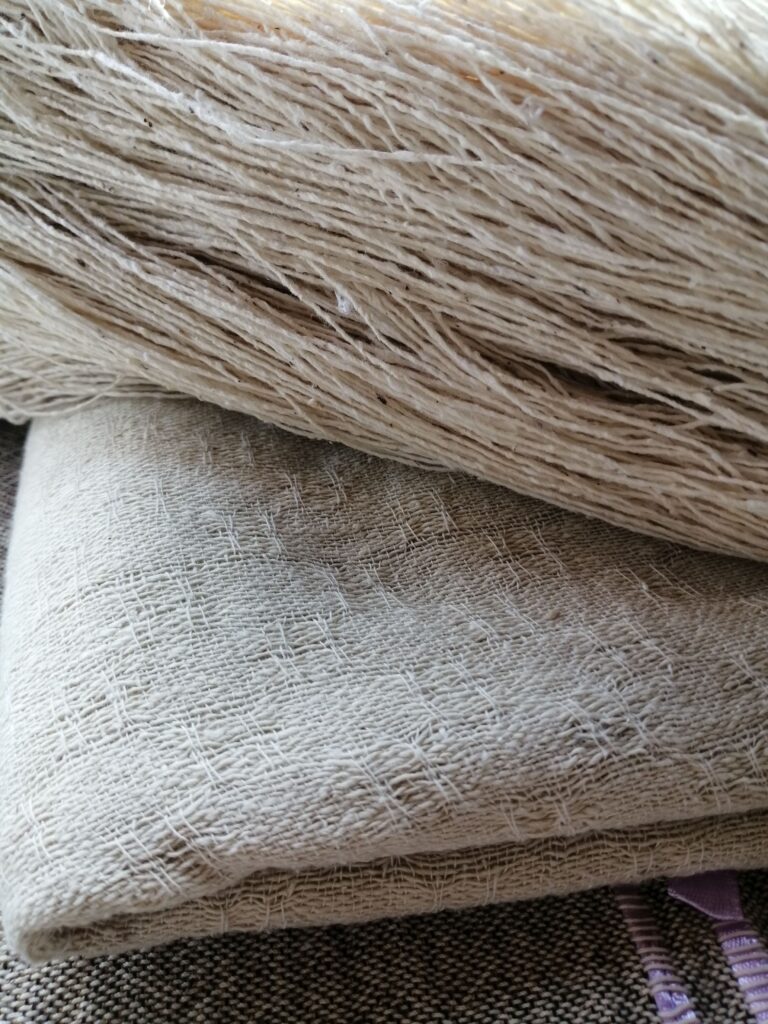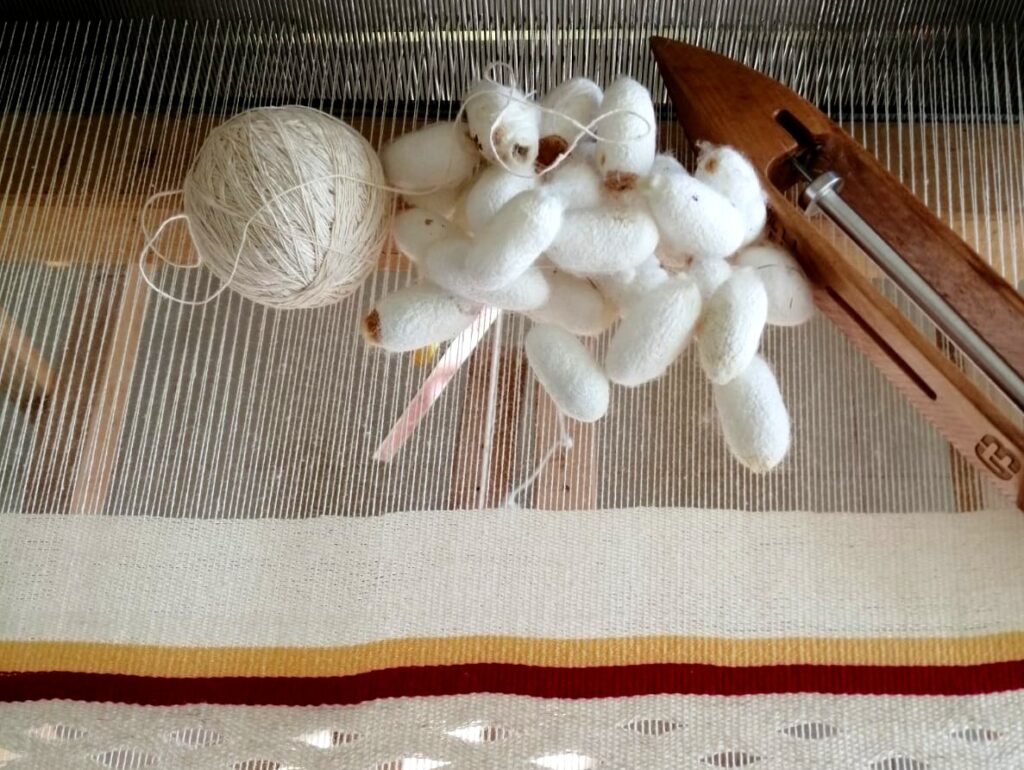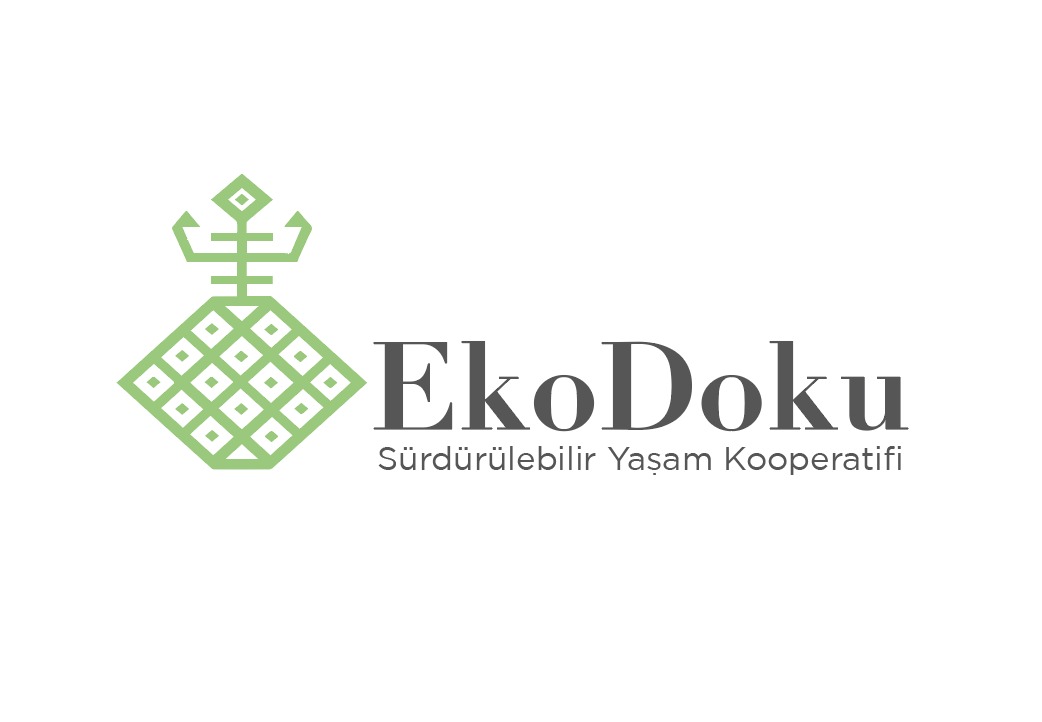WHY WAS EKODOKU ESTABLISHED?
EKODOKU was inspired by the PEACE SILK, which allows the silkworm to complete its life cycle. Contrary to thousands of years of tradition, this ecological and sustainable silk production method, which allows the silkworm butterfly to emerge from the cocoon alive and continue its life cycle of "egg-caterpillar-cocoon-pupa-butterfly-egg", gave us the idea that we can consider different products and productions from a sustainability perspective and add innovations.
Thus, we established EKODOKU in order to catch the overlooked loops in the fabric formed by the natural life of the way, knowledge, technique, tradition, art, craft and production culture that human beings accumulate by observing, experimenting, producing and accumulating nature, to repair, revive, add colors, embroideries, embroidery, embroidery, to multiply by sharing, to bring back to life, to make it sustainable, to carry it to the age and the future with the dexterity of women's hands. Founded as a Women's Enterprise Cooperative, EkoDoku is also a Social Enterprise, it does not distribute dividends but uses its income to increase social benefit. Translated with www.DeepL.com/Translator (free version)
WHAT DOES EKODOKU DO?
EKODOKU's activities include empowering all vulnerable groups, especially women and youth, increasing solidarity among non-governmental organizations, protecting the natural environment, developing decent work opportunities, promoting green growth, disseminating scientific studies and innovation, protecting cultural heritage and carrying it to the future, meeting the economic, technological, artistic, scientific, digital, social and cultural needs of its partners and target groups, as well as the production of goods and services within the scope of its economic activities; as well as meeting the needs for marketing; developing and implementing projects for all these ideals.

OUR STORY
EKODOKU Sustainable Life Cooperative is a social enterprise consisting of lawyers, economists, engineers, trademark and patent experts, political scientists, producers, project managers and entrepreneur women from Ankara, Hatay, Istanbul and Izmir who care about life, environment, tradition, innovation, agriculture, production, manual labor, technology and empower women in all areas of life.
The story began in Hatay in 2017-2018. During the approximately 10-month period of intensive but equally instructive sector research, feasibility preparation, and project development at the Hatay Sustainable Textile Center, under the leadership of Esra, the core team consisting of Alev, Ayşen, Berna, Emel, and Tuba not only brought this valuable project to Hatay but also laid the foundations for the cooperative idea.
Finally, the ideal of "Let's Succeed Together" made us friends "One". Thus, each of us weaved our cocoon like a silkworm with what we accumulated in our fields of expertise, our acquaintances, testimonies, what we saw and learned as we traveled through the villages of Anatolia for years. And in the full abundance of spring, we founded our cooperative EKODOKU in May 2021.
OUR PRINCIPLES
Open and transparent;
In all business and relationships, in compliance with the laws and regulations;
In human relations, without discriminating religion-language-race-gender;
Solidarity, sharing and social benefit-oriented;
Sensitive to sustainable development principles and the environment;
Respectful of tradition and prepared for the future.

OUR GOALS
To empower vulnerable groups, especially women and youth, by conducting Social Benefit-oriented activities;
Contributing to rural and urban development by creating new and innovative weaving-related jobs for women and youth;
To raise awareness that will increase the preference of using natural and local fibers instead of artificial and synthetic fibers in the products we use in our personal and households;
Research, recording, preservation and reproduction of traditional art, methods, tools and equipment of the production processes and weaving of natural fibers widely used in traditional weaving of Anatolia;
Creating a clustering network with individuals and institutions that produce and weave natural fibers and protect traditional knowledge;
Preparation of projects and trainings for the empowerment of women who have interest, knowledge and skills in weaving and related handicrafts;
Developing manual or digital methods for the reuse of traditional and contemporary weaving products.
